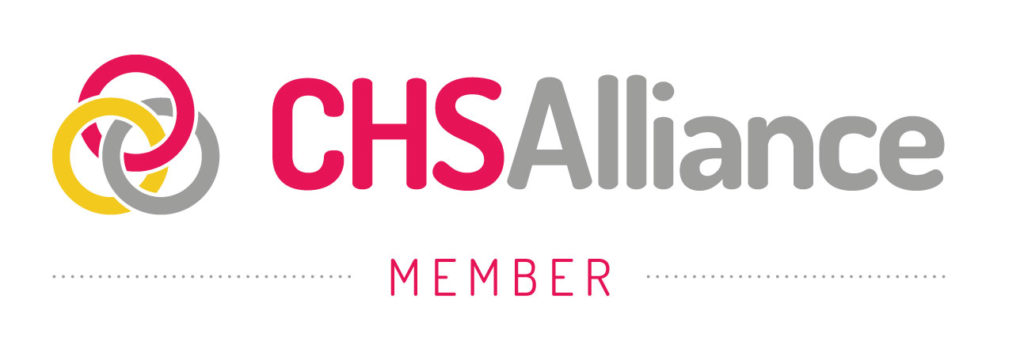The fallout from the 2014 war in Gaza continues to have a devastating effect on the lives of the Palestinian people. Families are spending over half their income on just the necessities to live, and those are the ones who have income. One in 2 people are considered food insecure . With over 50% of…
Ashraf is a young boy suffering from chronic malnutrition which affects a third of Gaza’s children, according to UNICEF. In April, he and his mother, residents of Beach Camp (also known as Al-Shati), visited the KinderUSA funded program implemented by our partner Ard El Insan (AEI) which is designed to address chronic malnutrition among children…
With the closure of neighboring borders, tens of thousands of refugees are trapped in Greece, including over 1900 unaccompanied minors. Many of these refugees escaped war after losing siblings, parents, relatives, friends, neighbors, homes, and their livelihoods. Many have followed family members who have already secured asylum in other countries away from the daily bombings,…
Even as recent events – from the horrific war in Syria to the traumatic flight of migrants to Europe – shine a spotlight on the plight of the world’s children, the forgotten children of Palestine continue to suffer from a denial of basic human rights. For these children, the daily struggle for food, shelter, education,…
The longer someone goes without food the hungrier they become. The same can be said of someone who goes without work. They are denied their very basic needs; food, shelter, protection, stability, and freedom from fear. Unfortunately, this is all too common in Gaza. The effects of the blockade have led to a consistent decline…
While the tide of humanity, desperate yet hopeful to forge a gateway into Europe, garners the world’s attention, the people of Gaza, equally desperate remain imprisoned with no chance for escape by land or sea. Electricity is available only three to six hours a day and more than 70% of Gaza’s children are food insecure.…
The fallout from the 2014 war in Gaza continues to have a devastating effect on the lives of the Palestinian people. Families are spending over half their income on just the necessities to live, and those are the ones who have income. One in 2 people are considered food insecure . With over 50% of the population food insecure, and 80% receiving aid, hunger remains a daily challenge for parents who do their best to provide just one meal a day for their children.
The idea that for every 1000 babies born in Gaza, 28 die from malnutrition is simply unconscionable .
For 5 year-old Yamen, life continues to inflict obstacles. His parents, unable to provide for him, left him in the care of his ailing grandmother who lives in a tin home with sand as a floor. On numerous occasions, Yamen has rebelled both in school and at home, longing to be with his parents. Sadly, he is often found sitting in the middle of the road, tearfully despondent.
Due to his severe financial status, he has been admitted into Kindergarten with the nominal yearly fee of $10 waived so he can enjoy some structure and stability in his life. Teachers have worked closely with Yamen, though as they note, “he is but one of many we see in our classes.” Some of the symptoms of malnutrition displayed by Yamen include listlessness and aching bones. But since he started kindergarten in January where he receives hot meals provided by KinderUSA, he complains less and is more involved and motivated.
“There are some things that we cannot change,” said KinderUSA Board Chair, Dr. Laila Al-Marayati, “but we can make a difference in the daily lives of children like Yamen so they are given a chance to thrive. His case shows how vital this program is to the basic survival of the most vulnerable in Gaza.”
For Yamen and children like him, food aid amounts to their lifeline. The nutritional meals program is not possible without your continued support. We can never underestimate the role we play in the lives of these children.
Ashraf is a young boy suffering from chronic malnutrition which affects a third of Gaza’s children, according to UNICEF. In April, he and his mother, residents of Beach Camp (also known as Al-Shati), visited the KinderUSA funded program implemented by our partner Ard El Insan (AEI) which is designed to address chronic malnutrition among children in Gaza. Ashraf is one of 2,400 children, newborns to age 5, who have been screened as part of the project, and one of 421 children admitted to the AEI clinic for nutritional and medical treatment.
Al-Shati, located along the Mediterranean coastline in Gaza, is the third largest refugee camp in the Palestinian territories and one of the poorest. After repeated conflicts and a blockade approaching its 10th year, the diet of Palestinians in Gaza lacks the variety and nutritional components needed.
Once children are diagnosed, they are treated with high nutrient biscuits and plumpy nut which is fortified with vitamins and micronutrients to reduce malnutrition. Mothers participate in health, nutrition, and cooking classes to change eating habits, making choices with what’s available within their budgets. Follow up visits are then conducted at the homes of these families.
Ashraf enjoyed the high nutrient biscuits and plumpy’nut, a peanut paste developed for severe and chronically malnourished children, since they are both nutritious and tasty. His mother participated in health education sessions to modify eating habits within the household.
“Ashraf was a model patient. He quickly improved from the treatment and his mother changed his eating habits and food choices,” said Dr. Adan Executive Director of AEI.
Ashraf’s mother has, “learned about managing the money we have for foods, healthy and cheap food options, and ways of cooking that keep the most nutritional value. We are happy with the significant recovery rate that my son has achieved and thank you for helping to protect my child’s health.”
“Chronic malnutrition affects every aspect of a child’s life, from growth to education. Without an end to the blockade the number of children affected will only increase,” said Dr. Laila Al-Marayati Chairperson KinderUSA.
This is a 2 year program that has just begun. We need your help to reach more families and children who can benefit from the work of our partner, Ard el Insan, a leader in promoting the health of Palestinian children. Please consider making a donation today!
With the closure of neighboring borders, tens of thousands of refugees are trapped in Greece, including over 1900 unaccompanied minors. Many of these refugees escaped war after losing siblings, parents, relatives, friends, neighbors, homes, and their livelihoods. Many have followed family members who have already secured asylum in other countries away from the daily bombings, lack of food and water, and fear for life in general.
Nothing is more difficult than lingering all day with little else to do than waking up. Working with Humanity Crew, a Palestinian NGO with Arabic-speaking staff, KinderUSA sponsored a day of joy this Eid ul Fitr.
Board member, Lamis El Farra, visited Divata camp near Thessaloniki, Greece to witness the impact of KinderUSA’s Eid ul Fitr gift program supported by your donations. Distributing reusable bags filled with paints, drawing materials, and toys to 1,000 children at a cost of US $20,000, Lamis reported back that your donations provided a ray of light in the lives of these children. We share her journey with you here:
“Greece is struggling. Thessaloniki had a lot of closed storefronts, graffiti and crumbling infrastructure. Yet the Greeks we spoke with were unanimous that those in need could not be turned away, saying; “It’s humanity.”
Diavata camp where the distribution took place is a former military installation with various office buildings for the camp administration and coordinating non-governmental organizations (NGOs). Hope is in short supply amongst the camp population as there is much uncertainty among the residents about their fates. One can imagine that camp life gets monotonous and frustrating, exacerbated by lack of privacy and perspective. Most basic needs are met (there is also a health clinic) and our partner, Humanity Crew, has started a school.
One resident is Abu Shawkat, originally from Tiberias/Galilee, who has led a nomadic life, with time spent in Libya, Yemen, Gaza, Tunis, and Syria, which was his last home before ending up in Diavata Camp. He lost his wife in Syria when their house was bombed. Two of his children are now in Sweden, lost in the hustle and confusion of boarding their rafts to Greece. The family was forced by the smugglers on to different boats and Abu Shawkat’s boat was stopped by border patrol while the raft carrying his children continued.
There was a young woman in a nearby tent who was overcome by seizures that doctors have not been able to diagnose. She was prostrate on the ground with two people holding her as they tried to calm her as her body twitched. The eldest of her two sons was about three years old and began to cry as he witnessed his mother’s distress. Her seizures are worse and occur more frequently now. Her husband is in Germany and is trying to come to Greece, but like so many others, their future is uncertain.
In addition to the Eid gifts, we (KinderUSA) arranged to provide baklawa for the entire camp, prepared and delivered by a local bakery, Chatzis (the best baklawa in Greece!). People lined up outside the tent to enjoy the warm baklawa, a treat beyond the food distributed by the camps administration. Two young men from the camp helped serve the baklawa to the beneficiaries, one cutting and plating, the other, Afiz from Afghanistan, checking the number of pieces per household.
Thank you to all who contributed to make this event possible!
See more photos
Even as recent events – from the horrific war in Syria to the traumatic flight of migrants to Europe – shine a spotlight on the plight of the world’s children, the forgotten children of Palestine continue to suffer from a denial of basic human rights. For these children, the daily struggle for food, shelter, education, and medical care serve as a grim reminder that the basic rights enshrined in the UN Convention on the Rights of the Child remain as elusive as ever.
In the West Bank, the number of residential structures demolished by occupation authorities grew by 265% in 2016, severely impacting the safety and wellbeing of numerous children and their families.
Meanwhile, in Gaza, the cumulative effect of 3 major wars in 6 years and the crippling blockade have left the civilian population in dire straits. Hundreds of children were killed during the most recent Israeli incursion in 2014, and more than 13,000 families remain displaced, living in makeshift shelters and rubble.Mohamed Ibn Chambas, speaking for the Secretary-General 03 May 2016 stated, “The humanitarian situation in Gaza remains of grave concern. All efforts should concentrate on helping the population in Gaza, still suffering from the consequences of the 2014 conflict: 74 per cent of affected families still await the reconstruction of their homes. Gaza’s chronic energy, water and employment needs also require urgent and sustained attention.”
Next month, we begin the largest Ramadan initiative in the history of KinderUSA for one reason – the need today is greater than it has even been since our inception as an NGO. Our Farmers and Women Cooperative project will cover areas most affected by demolitions, blockades, and the needs of these innocent children. Fresh food, live poultry, dairy products and more will immediately feed children and their families during the month of Ramadan.
Please consider making a donation today to help support our efforts to bring sustenance to children and their families in Palestine. Thank you.
KinderUSA is a 501 ( c ) 3 tax-exempt organization. EIN: 75-2999028
If you are in southern California, don’t miss our upcoming annual event in Glendale with Dr. Ramzy Baroud: https://www.facebook.com/events/1019948171417152/
The longer someone goes without food the hungrier they become. The same can be said of someone who goes without work. They are denied their very basic needs; food, shelter, protection, stability, and freedom from fear. Unfortunately, this is all too common in Gaza. The effects of the blockade have led to a consistent decline in the socioeconomic conditions of the population in Gaza creating underdevelopment, severe poverty, and unemployment rates the highest in the world according to the World Bank. Young teenagers are forced to leave school prematurely in order to find work and help support their families.
Understanding everything from the basic needs to the complex issues facing Gazans is integral to reconstructing hope for these communities. KinderUSA is in its second year working with our partner, Tamer Institute for Community Education. The project works directly with a network of community libraries and parents to provide a safe, free environment for children and young adults to protect them from the political, social, and economic circumstances that surround their daily existence. While the library offers knowledge, perhaps more importantly, it opens the door to a wide world through books to alleviate stress, enable coping with traumatic experiences, and foster well-being.
The work that Tamer Institute is doing with KinderUSA allows for creative expression to bring together similar ideas and values through art while encouraging mother and child to work together reestablishing relationships. It’s our goal to promote learning, literacy, and psycho-social well-being for the child, and assist in the underlying depression of the parents, through storytelling, reading, writing and expressive arts. By engaging both children and parents in this process, it is our hope that families will understand the importance of encouraging their children to remain in school as higher educational attainment provides a better future of all.
“Engaging families in creative art and literacy promotion will promote a healthy approach to overcoming the challenges faced by the people of Gaza,” said Dr. Laila Al-Marayati, Board Chair.
Please join us in helping children to flourish and allow them and their families a chance to heal. The project supports five public libraries across Gaza that serve 1,900 children and youth as well as 400 caregivers and goes through the summer.
While the tide of humanity, desperate yet hopeful to forge a gateway into Europe, garners the world’s attention, the people of Gaza, equally desperate remain imprisoned with no chance for escape by land or sea. Electricity is available only three to six hours a day and more than 70% of Gaza’s children are food insecure. Over half a million people are still displaced in this tiny enclave after three devastating military operations in the past 6 years.
The school year in Gaza is now underway and 1000 students benefited from KinderUSA’s distribution of vouchers to purchase new uniforms, shoes, socks, and backpacks with stationary. Eighty-five percent of these students live in make-shift shelters since most of their homes were completely demolished or rendered uninhabitable during the 2014 war.
The needed items for the new school year cost an estimated $24 per student, a fee out of reach for most families in Gaza. Parents who were interviewed prior to the distribution told us that their children refused to attend school without supplies. Implemented in 10 locations throughout Gaza, the purchases were made locally which provided a boost to the economy while employing 30 workers temporarily.
Despite insurmountable obstacles, many Gazans have been trying to flee the brutal reality they face by attempting to escape by crossing the border at great personal risk. A few have made it while others have been arrested and sent back. One of our partners, Maha A., spoke to those who are trying to leave, “Some manage to make it to Libya, or to Italy through Egypt. They said if they drown, it is a risk most are willing to make. Here, they see no future for their families or for themselves,” she reported. “They don’t want to leave Gaza, but their life has deteriorated so much that they see no other option.”
“If they had the choice, many people from Gaza would join the wave of refugees fleeing to Europe,” said Dr. Laila Al-Marayati, Chairperson of KinderUSA, “but since they must remain, we continue to ask you to help us do our part to make life in Gaza more bearable.” Please continue to support the important work of KinderUSA.
[wowslider id=”6″]



